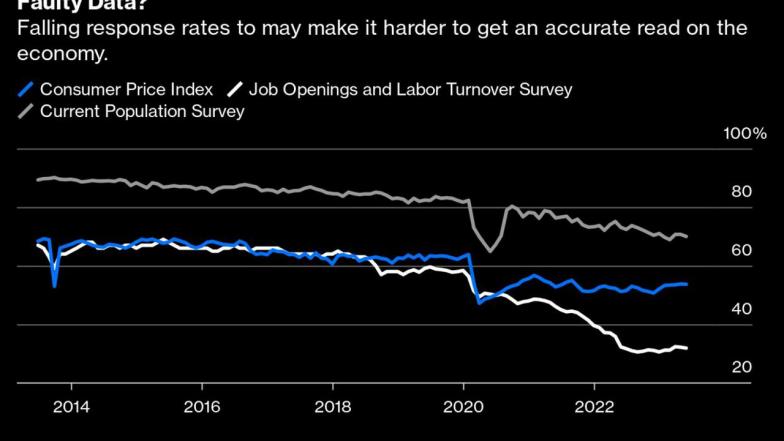Economists May Have Been Flying Blind All Along
Declining response rates to official surveys raise the possibility that government and central bank officials have been making decisions based on flawed data.
Economists may not be seeing the full picture.
Photographer: Hulton Archive via Getty ImagesThe pandemic upended many of the things we thought we knew about the economy. Even now, economists struggle to answer such fundamental questions as whether Americans are better off financially. Answers vary significantly depending on the data source, sowing confusion. The end result is that business and households seem to be losing trust in the data and have become increasingly unwilling to participate in the surveys that underlie official statistics such as unemployment and inflation that, in turn, help inform decisions made by government officials and central bankers.
Sure, Covid-19 made conducting surveys extremely difficult, but the recovery still left response rates short of the pre-pandemic levels. Take the Job Openings and Labor Turnover Survey, or JOLTS. Bloomberg Businessweek reported earlier this year that the response rate to the survey had plunged by half to 31%. At the same time the response rate fell, the Federal Reserve drew increasing attention to the record high unfilled openings that the survey reported. What the Fed viewed as an “extremely tight labor market”




No comments:
Post a Comment